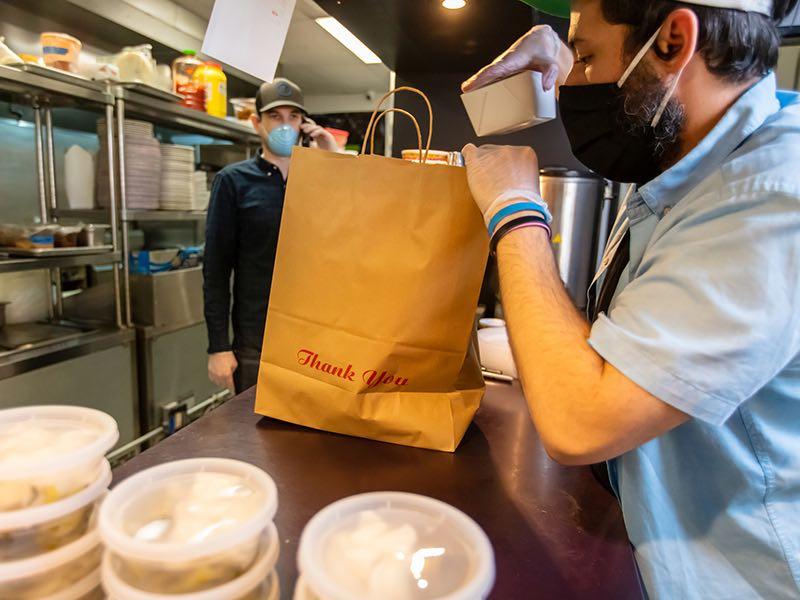Tulane researchers studying challenges of food service workers during COVID-19 pandemic
When COVID-19 brought the country to a virtual standstill in the spring of 2020, one group of workers soon became known as the pandemic’s unsung heroes. They made school lunches for virtual learning. They kept grocery stores stocked with food. And they prepared to-go orders to help keep the restaurants that employed them afloat.
“Food service workers and their families were among the hardest hit early in the pandemic and face ongoing challenges,” said Michael Hoerger, an associate professor of psychology, psychiatry and oncology at Tulane University. “The delta variant and Hurricane Ida compounded these challenges.”
In partnership with the Louisiana Public Health Institute, Hoerger and Tulane psychologist Courtney Baker are co-leading a project that aims to address pandemic-related issues among food service workers, including health and safety issues, stress and other long-term consequences.
The project, titled “Building Capacity to Support the Pandemic's Unsung Heroes: Frontline Essential Food Service Workers,” is being funded with a $200,000 award from the Eugene Washington PCORI Engagement Awards program, an initiative of the Patient-Centered Outcomes Research Institute (PCORI).
“Many people working in food service positions have experienced an above average risk for contracting COVID-19,” Hoerger said. “They have also faced stress related to lost income from capacity limits, health-related concerns and the enforcement of mitigation efforts.”
“The project is unique in involving families and schools as the consequences of the pandemic ripple across the community,” added Baker, an associate professor of psychology at Tulane.
Given the uncertainty of the pandemic, the team devised its project plan using an adaptive strategy called scenario planning. This allows researchers to prioritize topics, outcomes and interventions based on the unfolding state of the pandemic.
The team is developing a multi-stakeholder collaborative that includes food service workers, family members, industry executives and school partners. Stakeholders will serve on the steering committee, engage in research training and topic prioritization, and support the dissemination, implementation and long-term sustainability of this work.
The project is part of a portfolio of projects that PCORI has funded to help develop a community of patients and other stakeholders equipped to participate as partners in comparative clinical effectiveness research (CER) and disseminate study results. Through the Engagement Award Program, PCORI is creating an expansive network of individuals, communities and organizations interested in and able to participate in and share the research.
The project will run for 18 months, during which researchers will look at such issues as vaccinations and masking; worry, sadness, anger and bereavement; finances and family issues; and long COVID, in which patients experience symptoms long after their initial diagnosis.
Hoerger said one of the goals of the project is to develop a research foundation that will enable his team to carry out larger pandemic-related projects involving this particular group. He is calling on food service workers to be involved in the study by identifying areas of greatest need and proposing potential solutions.
Researchers are interested in talking to employees of grocery stores, restaurants and other food-related businesses as well as their families, business owners and other interested parties. Beginning in December 2021, they will conduct surveys, focus groups and interviews to gain a better understanding of the needs surrounding health and safety, stress and long-term consequences of the pandemic.
Additionally, researchers will hold a series of virtual town hall meetings and trainings to help study participants become more familiar with the project in terms of best practices, research skills and pandemic-related information. For more information, contact Hoerger at mhoerger@tulane.edu or 504-314-7545.

